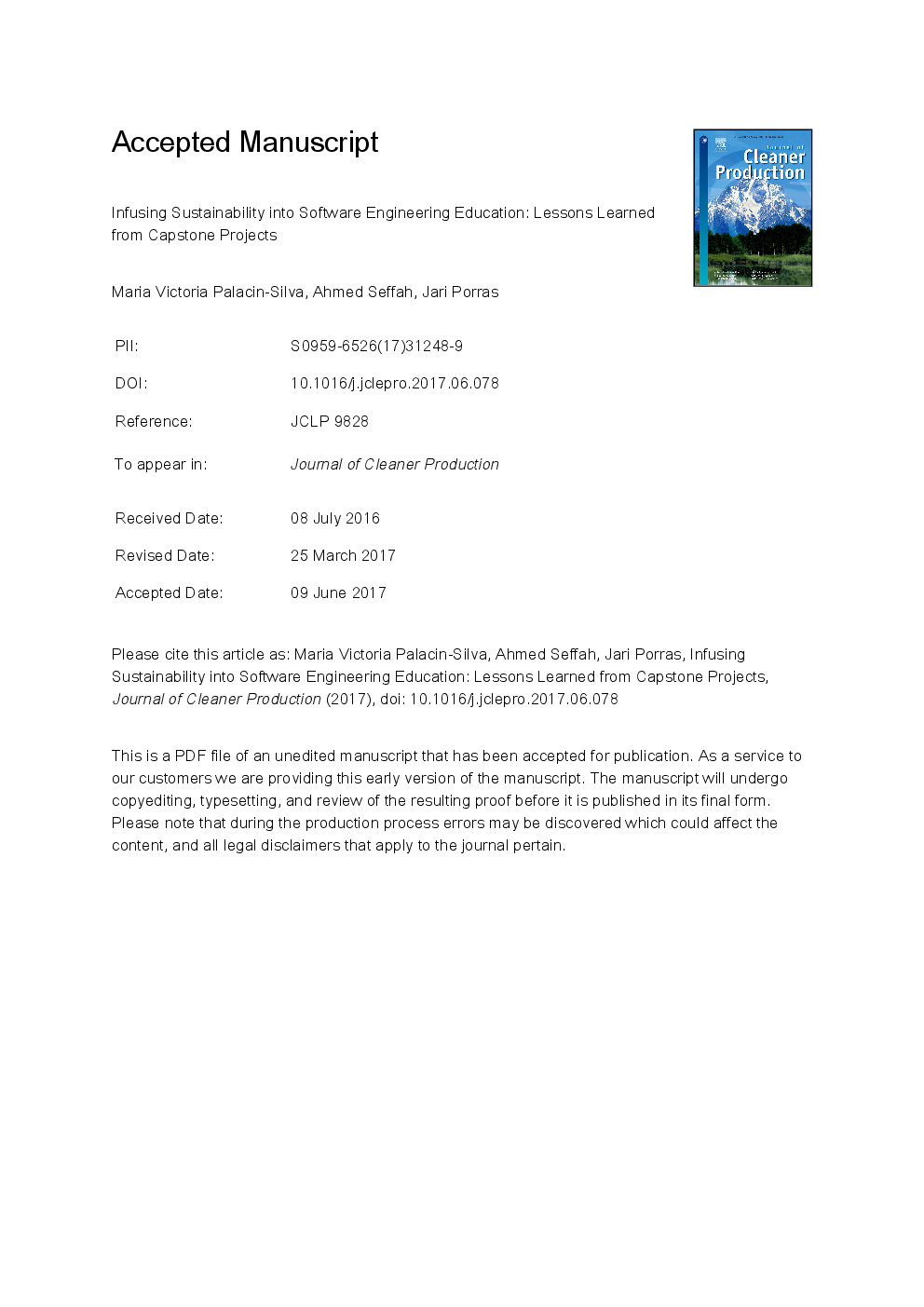ترجمه فارسی عنوان مقاله
تداوم پایداری در آموزش مهندسی نرم افزار: درس هایی که از پروژه های سنگ شکن یاد می شود
عنوان انگلیسی
Infusing sustainability into software engineering education: Lessons learned from capstone projects
| کد مقاله | سال انتشار | تعداد صفحات مقاله انگلیسی |
|---|---|---|
| 82392 | 2018 | 18 صفحه PDF |
منبع

Publisher : Elsevier - Science Direct (الزویر - ساینس دایرکت)
Journal : Journal of Cleaner Production, Volume 172, 20 January 2018, Pages 4338-4347

